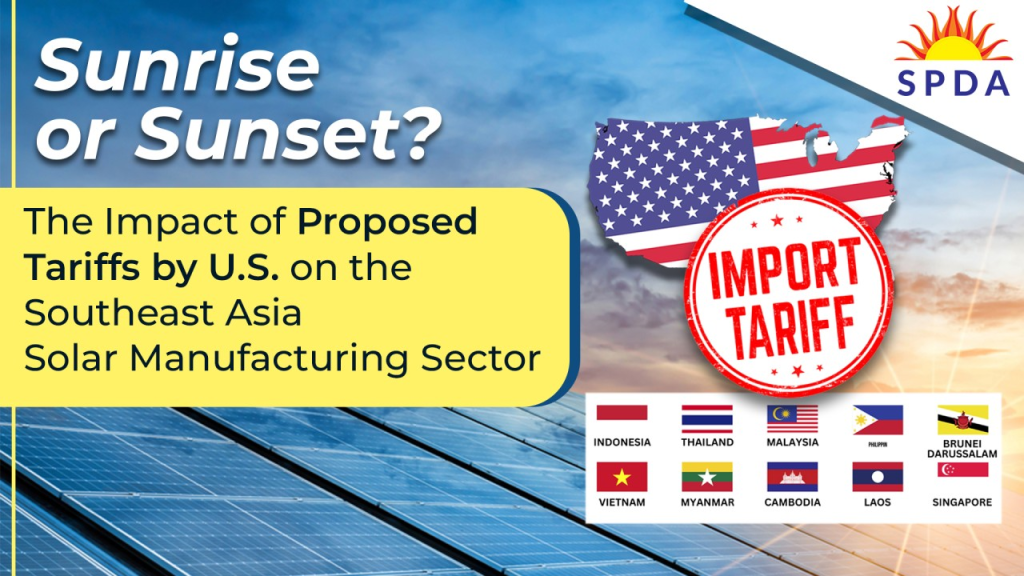
The current situation regarding U.S. solar manufacturers seeking additional tariffs on panel imports from Southeast Asia is a critical issue with significant implications for both the domestic solar industry and broader efforts to combat climate change. Here’s a more detailed breakdown of the situation:
U.S. solar manufacturers have petitioned the government for the imposition of duties on imported solar equipment valued at approximately $12.5 billion from Southeast Asia. This request aims to address what is perceived as unfair competitive practices by overseas manufacturers, particularly those in Cambodia, Malaysia, Thailand, and Vietnam, which collectively account for around 80% of U.S. panel imports.
Key Points of the Petition
- Manufacturers Involved: The petition has been filed by several companies including Convalt Energy Inc., First Solar Inc., Hanwha Qcells USA Inc., Meyer Burger (Americas) Ltd., Mission Solar Energy LLC, REC Silicon ASA, and Swift Solar Inc.
- Allegations: The petitioners claim that the imported panels are being sold below production costs and benefit unfairly from substantial subsidies, purportedly from the Chinese government. This has been noted especially after a recent U.S. government probe found that Chinese companies were circumventing existing tariffs by assembling their panels in the mentioned nations.
- Requested Duties: The requested tariff rates vary from 70.4% to 271.5%, aimed at creating a level playing field for U.S. manufacturers.
Economic and Policy Implications
- Impact on U.S. Solar Manufacturing: These tariffs could potentially strengthen U.S. solar manufacturing, aligning with President Joe Biden’s focus under the Inflation Reduction Act, which has allocated billions for new solar factories. However, U.S. manufacturers argue that the effect of these subsidies is being undermined by the influx of cheaper imported panels.
- Concerns from Renewable Energy Advocates: There is considerable concern from groups such as the Solar Energy Industries Association and the American Council on Renewable Energy. They argue that these tariffs could lead to market volatility, increase project costs, and create uncertainty during a period where there is a push for efficient and supportive measures for U.S. solar manufacturing without compromising the growth and deployment rates.
Potential Outcomes
- Government Review: The U.S. Commerce Department is expected to review the petitions to determine if there is sufficient basis to initiate a trade investigation. A decision is anticipated within the next 20 days, with preliminary duties possibly being imposed in about four months.
- Long-Term Impact: While some argue that tariffs will make U.S. manufacturing more competitive by addressing anti-competitive behaviors, others worry about the potential slowdown in solar deployment due to increased project costs. However, Tim Brightbill, a key legal figure for the petitioners, contends that the U.S. has ample stockpiles of panels to continue supporting projects for at least 18 months without a significant impact on solar deployment costs.
Our view : The decision to impose additional tariffs on solar panel imports is a complex issue that balances the need for protecting domestic industries with the broader goals of affordable renewable energy and climate change mitigation. As the situation develops, the implications of these tariffs will become clearer, particularly in terms of their real impact on both the pace of solar energy deployment and the competitiveness of U.S. solar manufacturing on a global stage.
